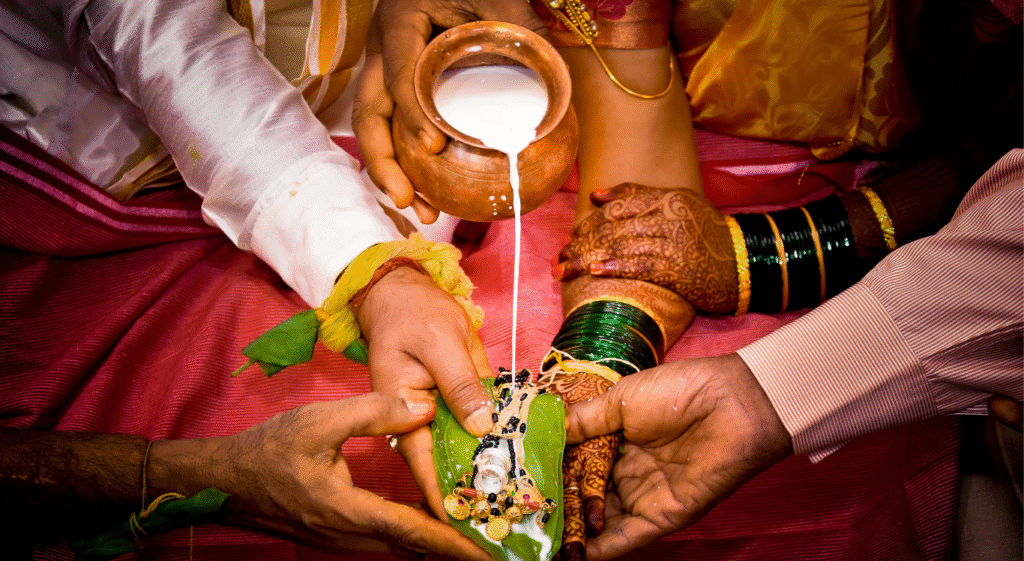Kamma Vaibhavam represents the pride, traditions, and achievements of the Kamma community. The word Vaibhavam means grandeur, prosperity, and glory. For the Kamma people, this term reflects their cultural strength, hardworking nature, and contributions to society over the years. The community is mainly found in Andhra Pradesh and Telangana but has also spread across different parts of India and abroad.
Kamma Vaibhavam is not only about material success but also about values like discipline, unity, and respect for heritage. The community has always been associated with agriculture, entrepreneurship, and education. Over the years, many leaders, industrialists, scholars, and artists from this community have made a mark nationally and internationally.
For Kammas, Vaibhavam also means keeping alive their customs, festivals, and family bonds. The spirit of togetherness during functions and the respect given to elders show how strongly rooted they are in their culture. Today, the younger generation continues to carry this forward, adapting traditions to modern life.
In short, Kamma Vaibhavam is a blend of history, culture, success, and community values. It is a symbol of identity that connects Kammas across the world while keeping their roots alive.
Historical Background of Kamma Community
The history of the Kamma community is rich and spans several centuries. The Kammas are traditionally known as agrarian warriors who settled in fertile regions of Andhra Pradesh. Their origins are linked to early dynasties and kingdoms where they played significant roles as landowners and military supporters. Over time, they became one of the most influential groups in Telugu society.
In the medieval period, Kammas were associated with kingdoms like the Vijayanagara Empire. They were known for their courage, loyalty, and contributions in battles. Their control over agriculture and land made them economically strong and socially respected. Agriculture, in fact, became the backbone of the community and gave rise to their reputation as skilled farmers.
With the passage of time, Kammas moved beyond farming and engaged in business, politics, and education. The community adapted to changing times while holding on to their core values of hard work and resilience.
Today, the history of the Kamma community is seen as a journey from being traditional agriculturists to becoming leaders in modern fields. This historical strength is what forms the foundation of Kamma Vaibhavam, which continues to inspire younger generations.
Cultural Significance of Kamma Vaibhavam
Culture is at the heart of Kamma Vaibhavam. From celebrating festivals with grandeur to respecting traditions, the community takes pride in preserving its cultural roots. Weddings, family gatherings, and religious events are celebrated with great enthusiasm. Music, dance, and traditional rituals add to the richness of their heritage.
For Kammas, culture also means discipline, respect for elders, and a strong sense of identity. These values continue to guide them in everyday life.
Contributions in Politics and Society
Kamma Vaibhavam is also reflected in the political and social contributions of the community. Many leaders from this community have played crucial roles in shaping Andhra Pradesh and Telangana. Their leadership qualities, decision-making skills, and vision for development have earned them respect across regions.
Beyond politics, the community is also active in social service, building educational institutions, and promoting welfare activities.
Economic Strength and Achievements
One of the strongest aspects of Kamma Vaibhavam is the economic progress of the community. Traditionally, Kammas were known for their expertise in agriculture. They cultivated fertile lands and contributed to food production in Andhra Pradesh. Over time, this agricultural strength laid the foundation for financial stability.
In the modern era, Kammas moved into diverse fields such as business, industry, real estate, and information technology. Many successful entrepreneurs and business leaders from this community have set up companies not only in India but also abroad. Their risk-taking ability and hard work are often seen as community traits.
Education has also played a key role in their economic growth. By focusing on quality education, Kammas ensured that the younger generation entered professional fields like engineering, medicine, and management. This combination of education and entrepreneurship strengthened their economic position further.
Thus, Kamma Vaibhavam is also about economic pride, showing how the community balanced tradition with modern development.
Role in Education and Knowledge
Education is a major pillar of Kamma Vaibhavam. The community has always believed in learning as a path to progress. Many schools, colleges, and universities have been established with the support of Kamma leaders.
Students from the community are encouraged to pursue higher studies and excel in competitive exams. This focus on knowledge has helped Kammas achieve recognition worldwide.
Presence Across the Globe
Kamma Vaibhavam is not limited to Andhra Pradesh and Telangana. Over the years, many members of the community have migrated to different parts of India and abroad. Countries like the USA, UK, and Australia have a strong Kamma presence.
Even while living away, they maintain strong ties with their culture and support community activities. This global spread has added to the pride of Kamma Vaibhavam.
Conclusion
Kamma Vaibhavam is not just a phrase—it is the living identity of a community with a glorious past and a bright future. It reflects the pride of the Kamma people in their history, culture, values, and achievements. From being skilled agriculturists in ancient times to becoming entrepreneurs, leaders, and professionals in modern society, their journey is truly inspiring.
What makes Kamma Vaibhavam special is its balance of tradition and progress. The community celebrates its cultural roots while adapting to global changes. Whether it is in politics, education, business, or social service, Kammas have left a strong mark.
The younger generation is carrying forward this legacy, proving that Kamma Vaibhavam is not limited to the past but continues to shine in the present. It is about unity, success, and respect for heritage. For every Kamma individual, Kamma Vaibhavam stands as a reminder of who they are and what they can achieve.



